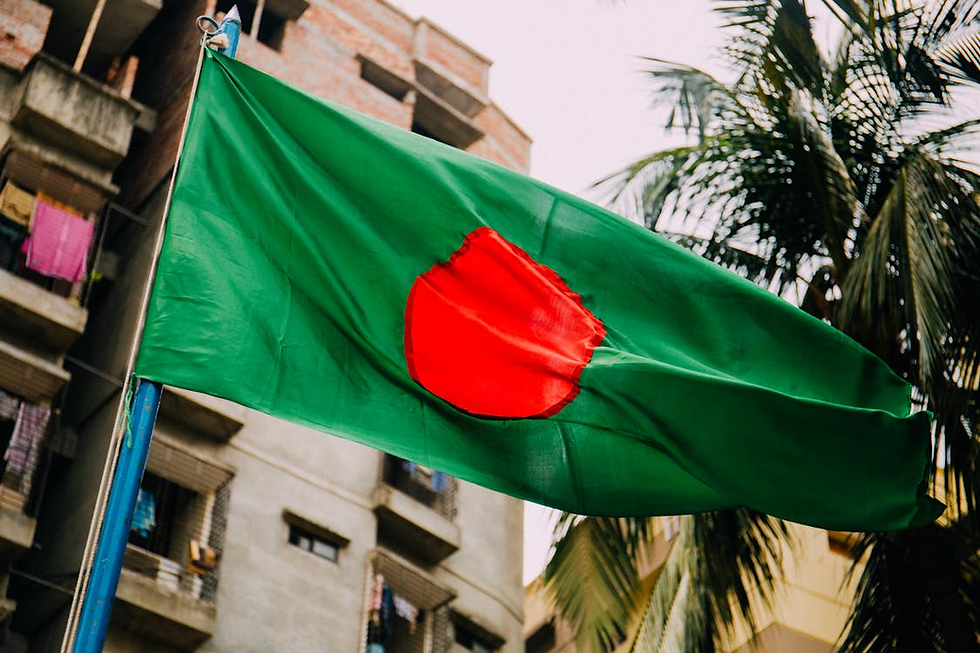Afghanistan on Brink of Complete Taliban Takeover
- Hannah McGaw

- Aug 15, 2021
- 3 min read
Updated: Dec 23, 2024
The Taliban are poised to take full control of Kabul, the capital city of Afghanistan.
The Taliban entry into Kabul follows the capture of Mazar-i-Sharif on Saturday (14/08/2021): Afghanistan’s fourth biggest city and the last major government stronghold in the north. Early on Sunday, the Taliban captured the city of Jalalabad without resistance, giving the insurgents control of one of the main highways into landlocked Afghanistan. The capture of Jalalabad means that the Taliban now controls the roads that connect the country to Pakistan. A Jalalabad-based Afghan official told Reuters: “There are no clashes taking place right now in Jalalabad because the governor has surrendered to the Taliban. Allowing passage to the Taliban was the only way to save civilian lives.”

Sky News reports that a Taliban leader based in Qatar has told the group's fighters to refrain from violence in the capital, but sporadic gunfire has been heard. Taliban fighters have been ordered to stand at entry points to the capital city, but the leader said that Taliban fighters will allow safe passage to anyone who wishes to leave the city. After the fall of Jalalabad in the east of Afghanistan, the airport in Kabul is now the only exit point under government control.
The Taliban appeared to have met little resistance as they have swept across the country. Fears of a return to “hard-line Islamist rule” have resurfaced with every city the Taliban has taken, threatening the gains made in equal education for women and girls.
In a televised speech yesterday, (14/08/2021), Afghanistan's president, Ashraf Ghani, vowed not to give up on the “achievements” of the last 20 years, when US troops first removed the Taliban regime from power. The current collapse of the government in Afghanistan follows a decision made by Joe Biden in May to withdraw US troops. However, the speed of the Taliban’s advance across Afghanistan appears to have blindsided Washington. In the early hours of this morning (15/08/2021), the US sent helicopters to evacuate diplomats from its Kabul embassy. Embassy personnel were ferried by military helicopter to the nearby airport and diplomatic armoured SUVs could be seen leaving the city. Before the diplomats were evacuated, The Guardian reports that smoke could be seen near the embassy roof as staff urgently destroyed sensitive documents.
The staff of the British embassy, alongside British nationals and local translators, have also quickly evacuated the country, with 600 troops being sent to assist with this effort after the UK Prime Minister said on Friday that the time had come for the vast bulk of British diplomatic staff to leave. In a similar manner, NATO officials claim that all EU staff members have been relocated to a safer, undisclosed location within the city.
The possibly imminent fall of Kabul is a disastrous moment for western policymaking; in December 2001, an international coalition led by Washington and London pushed the Taliban out of Afghanistan. Despite defending his decision to withdraw US troops from Afghanistan, the Biden administration has warned Taliban officials that any actions putting American personnel at risk will “be met with a swift and strong US military response”. Biden warned that an indefinite American military presence in Afghanistan was not an option, and he advised that the task of fighting back against Taliban fighters must fall to Afghan forces: “One more year, or five more years, of US military presence would not have made a difference if the Afghan military cannot or will not hold its own country. And an endless American presence in the middle of another country's civil conflict was not acceptable to me.”
The Afghan President, Ashraf Ghani, is reportedly holding emergency talks with US diplomat, Zalmay Khalilzad, and top NATO officials.
As embassy staff are being evacuated from Afghanistan, Downing Street has said “The prime minister is expected to recall parliament this week to discuss the situation in Afghanistan.” The Liberal Democrat leader, Ed Davey, has demanded a crisis summit for Westminster leaders and a full recall of parliament. On Sunday, Davey wrote to the prime minister: “It is without doubt that we face a crucial point in history and, as a nation, we must act together before it is too late. Given the tragedy unfolding before our eyes and the grave threat to national security this raises, I urge you to invite all Westminster party leaders from across the UK to meet with you to discuss our nation’s response to this crisis. It is also right that parliament is recalled as soon as possible to discuss the UK’s response.”
Currently, a peaceful transfer of power to a transitional government is being prepared, according to the BBC.

_edited.png)



Comments